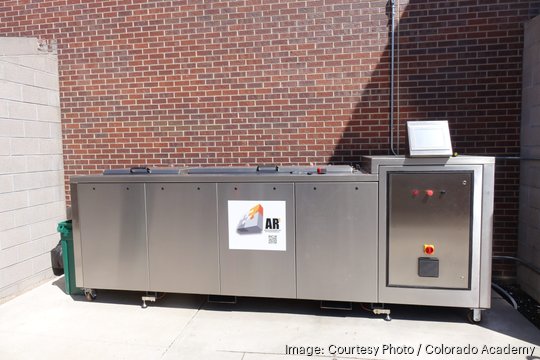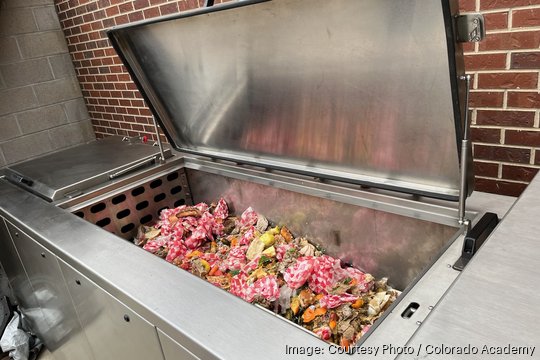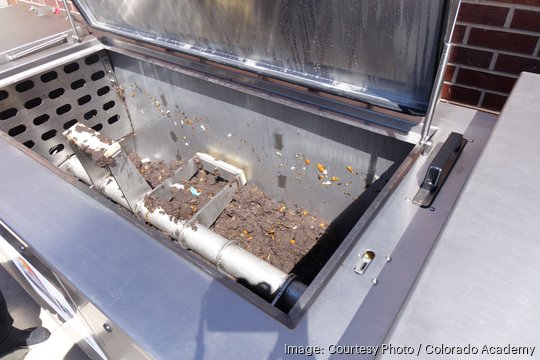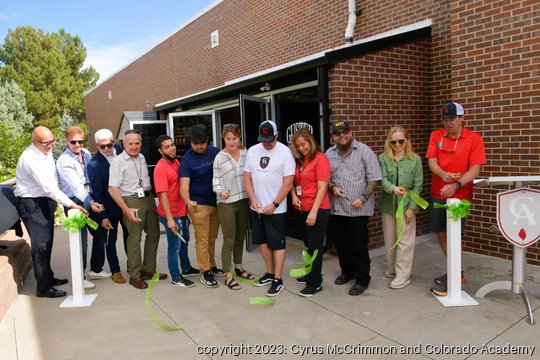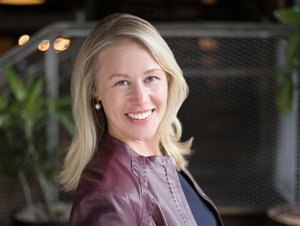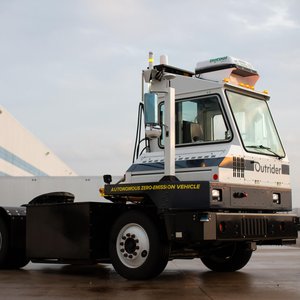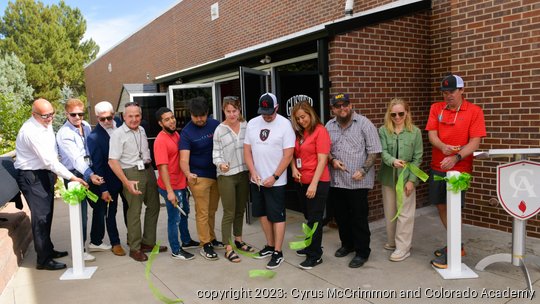
A Denver private school is reevaluating its sustainability efforts, starting with food waste.
Colorado Academy installed a machine to convert food waste from the 100-acre campus into safe-to-handle compost in roughly 24 hours, depending on the size of the waste.
The machine, called an Advanced Thermophilic Aerobic Digester or biodigester, comes from Vancouver, Canada-based Assured Renewables. Each year, it can convert approximately 200,000 pounds of food waste from the private pre-kindergarten through 12th-grade school into fertilizer and compost.
Phil Smith, director of communications at Colorado Academy, told Colorado Inno via email that the school is educating more than 900 children and the faculty about how modern technology can be used to eliminate greenhouse gas.
“Our main goal is to educate our students and parents about the importance of sustainability and why it matters so much,” Smith said. “Secondly, we aim to show through example what we are doing in the CA community to lessen our carbon footprint."
The school raised $115,100 to install the machine and construct a standalone building with a storefront window to house the biodigester.
CA is the second school in the U.S. to install an Assured Renewables Aerobic Digester on site, said Alistair Haughton, CEO of Assured Renewables. Another similar machine is operational at North Park School for Innovation in Minnesota.
Colorado Academy's biodigester
Although the machine at CA was installed earlier this year and operational by Earth Day, the school held a dedication day for the digester — named "Guster" by the students — in conjunction with homecoming on Sept. 30.
Here’s how the process from waste to fertilizer and compost works. The school dumps its food waste into the biodigester. The machine then uses oxygen and oxygen-breathing bugs to convert the waste into compost in 24 hours. CA is using the composted material as fertilizer in the school’s vegetable garden and will likely expand its uses across campus.
Haughton said the goal of its biodigester is to save the school money and also educate the younger generation about ways to reduce their emissions and be more sustainable.
On the educational front, CA has hosted small groups to learn about the machine, even allowing attendees to take home a sample of the composted material to use in their own home gardens.
On the cost savings side, Smith said the biodigester is also saving the school money and will continue to do so over time. Since its installation, CA has saved $40,000 in annual trash bag and liner purchases and costs associated with moving the food waste off-site. The biodigester also has the potential to eliminate the need for CA to purchase and import commercial fertilizers, Smith added.
In addition to the biodigester, CA recently installed a glass crusher machine to reduce the size of a bottle and smash it into silica sand. This will make it easier and cheaper to move the glass off CA’s campus. The sand also has several uses, including sand on golf courses and sports fields and in glassmaking and ceramics. Nathan Barotz of Bottle Crusher US donated the device to the school.
CA also plans to install an industrial glass shifter and digestate in the near future and is considering adding a cardboard shredder and recycler to further its sustainability efforts.
